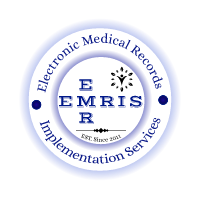As medical practices and technologies have advanced, the delivery of sophisticated, high-quality medical care has come to require teams of health care providers—primary care physicians, specialists, nurses, technicians, and other clinicians.
Each member of the team tends to have specific, limited interactions with the patient and, depending on the team member’s area of expertise, a somewhat different view of the patient. In effect, the health care team’s view of the patient can become fragmented into disconnected facts and clusters of symptoms. Health care providers need less fragmented views of patients.
Leveraging an EHR across the continuum of care allows for:
- Better integration among providers by improved information sharing,
- Viewable and up-to-date medication and allergy lists,
- Order entry at point of care or off-site,
- Standardization of data, order sets, and care plans helping to implement common treatment of patients using evidence-based medicine,
- Access to experts for rural health care providers by sharing best practices and allowing for specialized care through telemedicine,
- Population management trended data and treatment and outcome studies,
- More convenient, faster, and simpler disease management.1
How EHRs Can Improve Care Coordination
Electronic health record (EHR) systems can decrease the fragmentation of care by improving care coordination. EHRs have the potential to integrate and organize patient health information and facilitate its instant distribution among all authorized providers involved in a patient’s care. For example, EHR alerts can be used to notify providers when a patient has been in the hospital, allowing them to proactively follow up with the patient.
With EHRs, every provider can have the same accurate and up-to-date information about a patient. This is especially important with patients who are:
Seeing multiple specialist:
- Making transitions between care settings
- Receiving treatment in emergency settings
Better availability of patient information can reduce medical errors and unnecessary tests.
Better availability of information can also reduce the chance that one specialist will not know about an unrelated (but relevant) condition being managed by another specialist.
Better care coordination can lead to better quality of care and improved patient outcomes.
